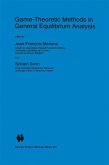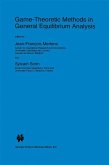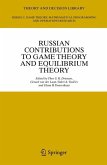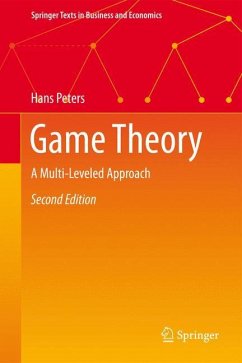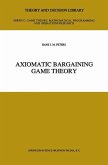Game-Theoretic Models of Bargaining provides a comprehensive picture of the new developments in bargaining theory. It especially shows the way the use of axiomatic models has been complemented by the new results derived from strategic models. The papers in this volume are edited versions of those given at a conference on Game Theoretic Models of Bargaining held at the University of Pittsburgh. There are two distinct reasons why the study of bargaining is of fundamental importance in economics. The first is that many aspects of economic activity are directly influenced by bargaining between and among individuals, firms, and nations. The second is that bargaining occupies an important place in economic theory, since the 'pure bargaining problem' is at the opposite pole of economic phenomena from the case of 'perfect competition'. This volume is an outgrowth of the renewed interest in the strategic approach to the theory of bargaining and to the general theory of non-cooperative games.
Table of contents:
Preface; 1. Editor's introduction and overview Alvin E. Roth; 2. Disagreement in bargaining: models with incomplete information Kalyan Chatterjee; 3. Reputations in games and markets Robert Wilson; 4. An approach to some noncooperative game situations with special attention to bargaining Robert W. Rosenthal; 5. Infinite-horizon models of bargaining with one-sided incomplete information Drew Fudenberg, David Levine and Jean Tirole; 6. Choice of conjectures in a bargaining game with incomplete information Ariel Rubinstein; 7. Analysis of two bargaining problems with incomplete information Roger B. Myerson; 8. Sequential bargaining mechanisms Peter C. Cramton; 9. The role of risk aversion in a simple bargaining model Martin J. Osborne; 10. Risk sensitivity and related properties for bargaining solutions Stef Tijs and Hans Peters; 11. Axiomatic theory of bargaining with a variable population: a survey of recent results William Thomson; 12. Toward a focal-point theory of bargaining Alvin E. Roth; 13. Bargaining and coalitions K. G. Binmore; 14. Axiomatic approaches to coalitional bargaining Sergiu Hart; 15. A comment on the Coase theorem William Samuelson; 16. Disclosure of evidence and resolution of disputes: who should bear the burden of proof? Joel Sobel; 17. The role of arbitration and the theory of incentives Vincent P. Crawford.
Table of contents:
Preface; 1. Editor's introduction and overview Alvin E. Roth; 2. Disagreement in bargaining: models with incomplete information Kalyan Chatterjee; 3. Reputations in games and markets Robert Wilson; 4. An approach to some noncooperative game situations with special attention to bargaining Robert W. Rosenthal; 5. Infinite-horizon models of bargaining with one-sided incomplete information Drew Fudenberg, David Levine and Jean Tirole; 6. Choice of conjectures in a bargaining game with incomplete information Ariel Rubinstein; 7. Analysis of two bargaining problems with incomplete information Roger B. Myerson; 8. Sequential bargaining mechanisms Peter C. Cramton; 9. The role of risk aversion in a simple bargaining model Martin J. Osborne; 10. Risk sensitivity and related properties for bargaining solutions Stef Tijs and Hans Peters; 11. Axiomatic theory of bargaining with a variable population: a survey of recent results William Thomson; 12. Toward a focal-point theory of bargaining Alvin E. Roth; 13. Bargaining and coalitions K. G. Binmore; 14. Axiomatic approaches to coalitional bargaining Sergiu Hart; 15. A comment on the Coase theorem William Samuelson; 16. Disclosure of evidence and resolution of disputes: who should bear the burden of proof? Joel Sobel; 17. The role of arbitration and the theory of incentives Vincent P. Crawford.



